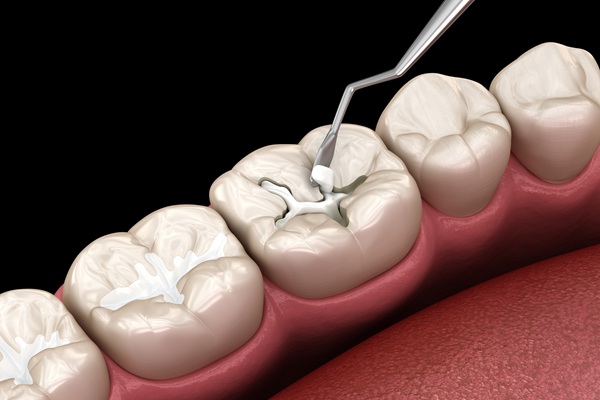Are Discolored Teeth a Health Concern?

Discolored teeth are problematic in terms of smile quality. However, teeth stains can also cause related health problems or at least contribute to such problems. So do not assume your discolored teeth are a problem insofar as they reduce the quality of your smile. Discolored teeth have the potential to impact your health as well.
Health Problems Tied to Discolored Teeth
Inadequate oral hygiene or the failure to visit with the dentist every six months will cause the teeth to yellow in hue. Plaque and tartar will accumulate, causing tooth decay, gum disease and more oral health issues. Discolored teeth often contain cavities. Cavities are tiny holes in teeth that damage their structure. Discolored teeth can also cause gingivitis, which involves bleeding and inflammation of the gums. Periodontitis occurs when bacteria along the teeth generate harmful toxins that damage the gums.
Discolored teeth and halitosis go hand-in-hand. Halitosis, also known as bad breath, occurs when bacteria is permitted to grow within the mouth. This bacteria has the potential to cause everything from teeth staining to dry mouth, sinus infections, bronchitis, liver or kidney issues, acid reflux and other conditions. Poor oral hygiene that causes discolored teeth can also lead to the formation of abscesses. Abscesses that form along the teeth, spur considerable pain and difficulty, especially when chewing.
Discolored Teeth are a Sign of Myriad Health Problems
Aside from the oral health issues noted above, discolored teeth can also indicate a number of additional health problems. In some cases, discolored teeth are a lead-in to another health condition, disease or malady. As an example, discolored teeth are often a sign of celiac disease. This is a disease in which the immune system interacts with gluten.
People who have diabetes, typically have a weak immune system. A weak immune system makes a person that much more susceptible to gum disease. If gum disease does not receive proper treatment, it will cause periodontal disease. Periodontitis makes it challenging to control blood sugar.
The failure to control blood sugar makes it that much more likely for an individual to develop type-2 diabetes. Once the gums weaken, it is easier for bacteria to move into the bloodstream and impact the immune system, causing higher blood sugar levels and other problems.
Request an appointment in our Torrance dentist office here: http://www.yanasedds.com.
Recent Posts
Practicing good oral hygiene not only maintains your oral health, but it also impacts your overall health — which is why the American Dental Association recommends brushing your teeth at least twice a day and seeing the dentist regularly.Your dentist can spot symptoms of overall health problems during a routine dental exam, allowing you to…
Daily oral maintenance is crucial to keep a healthy set of gums and teeth. It’s important to pay attention to the entire mouth as a whole. Doing this will provide a person with healthy teeth and gums, as well as a great smile.Knowing the best ways to maintain a healthy mouth can be difficult because…
Picking a toothbrush and toothpaste is an important part of oral hygiene. Brushing twice a day is the best protection from tooth decay and gum disease. It helps remove food particles and plaque that are left on a person's teeth and gums after eating. The bacteria in the mouth convert these food particles and plaque…
Many patients know eating sugar is bad for teeth, and any general dentist will say that eating high fructose corn syrup is even worse! High fructose corn syrup causes more intense blood fructose fluctuations than white sugar does, and this causes more minerals to be pulled from teeth and bones. Losing these minerals weakens the…


